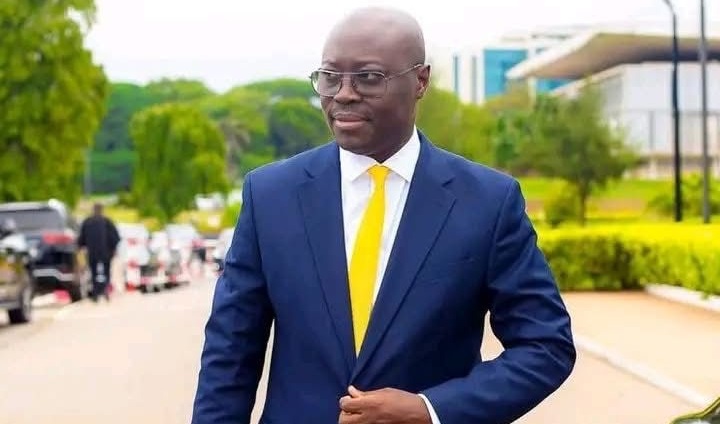S&P Global Ratings has upgraded Ghana’s sovereign credit rating from CCC+/C to B-/B, citing stronger export performance, rising foreign reserves, and improved fiscal discipline nearly three years after the country defaulted on its international debt.
The upgrade, announced on November 7, 2025, marks a major step in Ghana’s recovery from the 2022 debt crisis that forced a suspension of Eurobond payments worth 13.1 billion dollars.
In its latest report, S&P said higher export volumes and favourable prices for gold and cocoa in 2025 had supported the cedi and boosted Ghana’s foreign currency reserves to almost 11 billion dollars, representing about nine per cent of forecast GDP.
This figure is up from 6.8 billion dollars at the end of 2024. The agency also assigned a stable outlook to the new rating.
Economic recovery and fiscal reforms
S&P said Ghana’s balance of payments and fiscal position were gradually strengthening, supported by resilient growth and strong commodity prices. Gold and cocoa together account for more than 60 per cent of Ghana’s total goods exports.
The report noted that the new administration, which took office after the December 2024 elections, had introduced measures to prevent fiscal slippages.
These include a rule requiring a primary surplus of 1.5 per cent of GDP each year and a plan to reduce debt to 45 per cent of GDP by 2034.
Inflation, which was above 20 per cent at the start of 2025, is expected to drop below 10 per cent in 2026, while the cedi has appreciated by about 30 per cent against the United States dollar this year.
Ghana has also completed the exchange of its local currency government debt and Eurobonds, with ongoing talks to finalise the restructuring of about five billion dollars in remaining debt owed to official and commercial creditors.
From default to renewed confidence
Ghana’s downgrade to CCC+/C in August 2022 followed severe financing pressures, depleted reserves, and surging inflation.
By December that year, the government announced a suspension of debt servicing as interest payments were consuming between 70 and 100 per cent of revenue.
Years of fiscal deficits had pushed public debt above 100 per cent of GDP by 2021, cutting Ghana off from international capital markets and prompting an International Monetary Fund intervention.
S&P said economic activity had since rebounded. The economy grew by 6.3 per cent in the first half of 2025, while the Bank of Ghana’s real composite index of economic activity increased by 6.1 per cent in July 2025, up from 1.9 per cent a year earlier.
The government’s drive to formalise the gold trade has also helped. The establishment of the Ghana Gold Board in March 2025 has encouraged small-scale miners, who account for about 60 per cent of total gold output, to sell through licensed channels.
Cocoa production has also improved, supported by favourable weather and a new prepayment arrangement for the state-owned Cocoa Board, which replaced syndicated loans.
S&P noted that the ruling National Democratic Congress’s majority in Parliament gives the government room to advance its fiscal and debt reforms, which remain anchored by the three billion dollar IMF Extended Credit Facility programme that runs until May 31, 2026.
Risks and outlook
Despite the progress, S&P cautioned that debt-service costs remain high.
Interest payments are projected to consume about 20 per cent of government revenue through 2028, although this is down from 44 per cent before the default.
The agency also cited unresolved disputes with some creditors, including the African Export-Import Bank and the Eastern and Southern African Trade and Development Bank, over preferred creditor status.
It warned that these disagreements could delay full completion of the debt restructuring process.
Other challenges include high foreign-currency-denominated debt, arrears of 1.86 billion dollars owed by state-owned enterprises to power producers, and a banking sector non-performing loan ratio of 23.6 per cent as of March 31, 2025.
S&P said the effectiveness of Ghana’s new fiscal measures had not yet been tested during an election cycle, a period often marked by increased public spending.
The country’s history of frequent IMF programmes and past debt relief under the Highly Indebted Poor Countries Initiative also underscored the need for sustained prudence.
The agency said it could lower Ghana’s rating if fiscal reforms slow or commodity prices decline, but a consistent reduction in deficits and stronger reserves could support a future upgrade.
